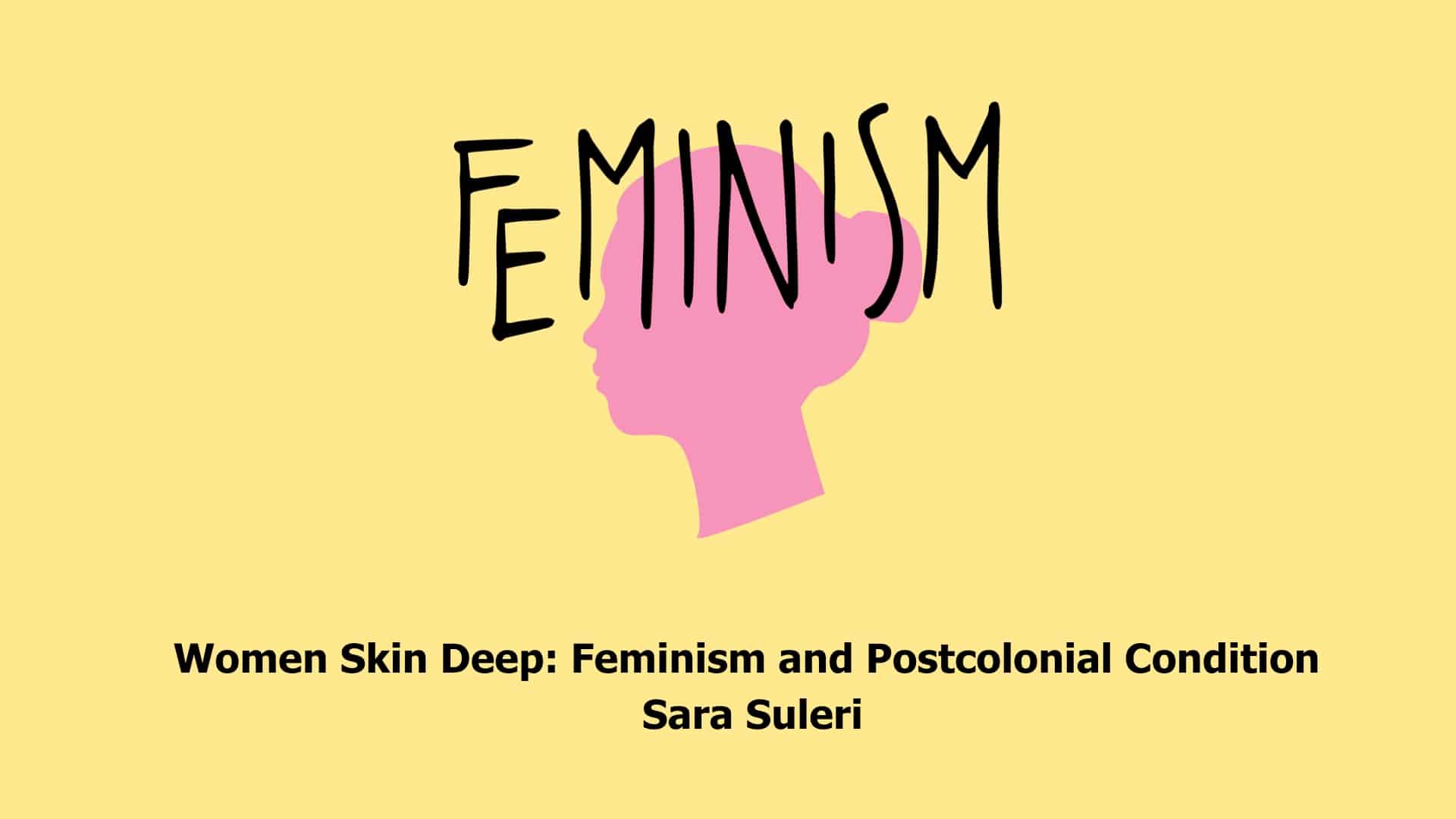Sara Suleri’s “Women Skin Deep: Feminism and the Postcolonial Condition” is a seminal work that probes the intricate connections between feminism and the complex postcolonial landscape, particularly within South Asia. In this blog, we’ll delve deep into the book’s core themes, Suleri’s unique writing style, and the significance of her contributions to the fields of feminist theory and postcolonial studies.

Table of Contents
Contextualizing the Postcolonial Experience
Suleri sets the stage by emphasizing the significance of understanding feminism within the context of postcolonial nations. She acknowledges that the postcolonial condition is shaped by the legacies of colonialism and the subsequent struggles for independence. Suleri’s insights underscore the idea that feminism cannot be divorced from this broader context.
Intersections of Gender and Identity
One central theme in “Women Skin Deep” is the intersection of gender and identity. Suleri delves into how colonialism and postcolonialism impact the identities and roles of women. She explores how gendered experiences are intertwined with issues of nationalism, cultural identity, and historical memory.
Complexity of Postcolonial Narratives
Suleri’s narrative style is marked by its complexity and richness. She weaves together personal anecdotes, historical accounts, and literary analysis to create a multi-layered narrative. Her writing mirrors the intricate nature of postcolonial identities and the challenges faced by women in navigating these complexities.
Shifting Power Dynamics
Through her analysis, Suleri highlights the shifting power dynamics in postcolonial societies. She acknowledges the roles played by women in various phases of colonial and postcolonial history, emphasizing the need to recognize women’s agency within these contexts.
The Influence of Literature
Literature is a significant vehicle for Suleri’s exploration of feminism and postcolonialism. She draws on a wide range of literary works to illustrate her points and offer nuanced interpretations. Her literary references serve as both evidence and inspiration for her arguments.
Challenges to Western Feminism
Suleri challenges Western feminism’s universalizing tendencies, arguing that feminist movements must be rooted in the specific cultural and historical contexts of each nation. She argues for a more inclusive and contextually aware approach to feminism.
South Asian Feminism
Within the book, Suleri explores the emergence of feminist movements in South Asia. She examines how these movements have adapted to local conditions, often taking unique forms compared to Western feminism. Suleri’s analysis provides valuable insights into the complexities of feminist activism in the region.
Postcolonial Critique
“Women Skin Deep” can be seen as a postcolonial critique of feminism itself. Suleri highlights the need for feminist theory to evolve and adapt in response to the postcolonial condition. Her work challenges readers to rethink conventional feminist paradigms.
Personal Reflections
Suleri’s personal reflections are interwoven throughout the book. These reflections offer a unique and intimate perspective on the themes she explores. They humanize the academic discourse, making it more accessible and relatable to readers.
Legacy and Influence
Since its publication, “Women Skin Deep” has had a lasting influence on feminist and postcolonial scholarship. It has encouraged scholars to engage more deeply with the complexities of postcolonial feminism and has contributed to a richer understanding of gender issues in postcolonial societies.
conclusion
Sara Suleri’s “Women Skin Deep: Feminism and the Postcolonial Condition” is a profound and nuanced exploration of the intersection of feminism and the postcolonial experience. While I can’t provide verbatim quotes from the book, this summary offers an in-depth look at the key themes and concepts within Suleri’s work. Her narrative style, use of literature, and personal reflections create a compelling narrative that challenges readers to think critically about feminism in a postcolonial world. The book’s enduring influence underscores its importance in the fields of feminist theory and postcolonial studies.
